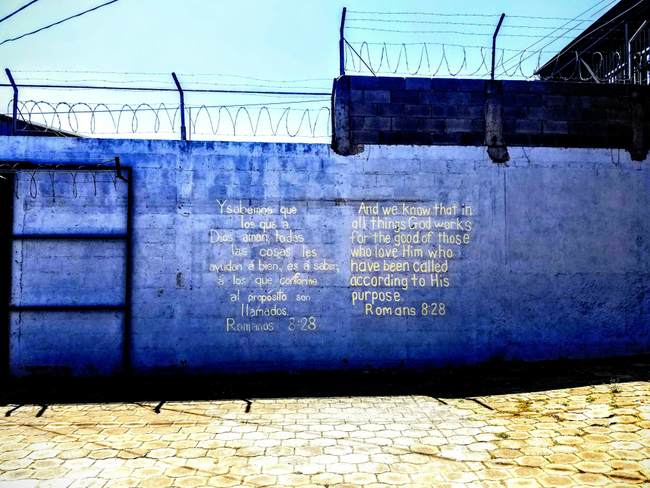
If you’ve been a Christian for any length of time, you’re probably familiar with the hymn “Blessed Assurance.” It’s a celebration of the eternal security we have in our relationship with Jesus. That theme echoes in my favorite chapter of the Bible: Romans 8.
Daniel Hyde writes that Romans 8 gives us “the big picture of assurance.” The first 17 verses explore what the entire Trinity has done for us in terms of our justification and sanctification, while the remaining 22 verses look to our future glorification. Today, I want to unpack the Apostle Paul’s look forward at the glory that awaits us as believers.
Paul kicks off this section by declaring in verse 18, “For I consider that the sufferings of this present time are not worth comparing with the glory that is to be revealed to us.” It’s no mistake that the word “sufferings” is plural because the “present time” refers to the entire period between Jesus’ ascension to heaven and His second coming. Generations of Christians have dealt with persecution, we can encounter the difficulties that come with serving the Lord, and, of course, we suffer simply because we live in a fallen world.
But Paul also looks to a future glory that supersedes our sufferings. Hyde writes, “One day, the ultimate experience of fellowship with God will be ‘revealed’ when He glorifies and ‘transform[s] our lowly bod[ies] to be like his glorious body’ (Phil. 3:21). When Paul ‘consider[s] the[se] sufferings’ in light of ‘glory,’ he says they ‘are not worth comparing.’ Our sufferings are earthly; God’s glory is eternal. Our sufferings are temporal; God’s glory is eternal.”
Related: Sunday Thoughts: Hope in Waiting, an Advent Meditation
We’re not alone in this hope for glory; “creation waits with eager longing” (verse 19) and “has been groaning together in the pains of childbirth until now” (verse 22). This isn’t some weird pagan notion of earth having consciousness. It’s rather a personification of the world we live in, which, like us, is awaiting God to physically redeem it from fallenness. Or, as Hyde puts it, “Be encouraged; we’re not alone in longing for the renewal of creation. Everything around you is too.”
Verses 23-30 are even more encouraging, and I think it’s best just to let those verses speak for themselves:
And not only the creation, but we ourselves, who have the firstfruits of the Spirit, groan inwardly as we wait eagerly for adoption as sons, the redemption of our bodies. For in this hope we were saved. Now hope that is seen is not hope. For who hopes for what he sees? But if we hope for what we do not see, we wait for it with patience. Likewise the Spirit helps us in our weakness. For we do not know what to pray for as we ought, but the Spirit himself intercedes for us with groanings too deep for words. And he who searches hearts knows what is the mind of the Spirit, because the Spirit intercedes for the saints according to the will of God. And we know that for those who love God all things work together for good, for those who are called according to his purpose. For those whom he foreknew he also predestined to be conformed to the image of his Son, in order that he might be the firstborn among many brothers. And those whom he predestined he also called, and those whom he called he also justified, and those whom he justified he also glorified.
In verses 31-39, Paul then turns to what Hyde refers to as a sort of catechism in which the “future-looking reality of assurance all comes to a glorious climax” — a question-and-answer or call-and-response about what the assurance of salvation means to us. Once again, the verses are so glorious that they speak for themselves:
What then shall we say to these things? If God is for us, who can be against us? He who did not spare his own Son but gave him up for us all, how will he not also with him graciously give us all things? Who shall bring any charge against God’s elect? It is God who justifies. Who is to condemn? Christ Jesus is the one who died—more than that, who was raised—who is at the right hand of God, who indeed is interceding for us. Who shall separate us from the love of Christ? Shall tribulation, or distress, or persecution, or famine, or nakedness, or danger, or sword? As it is written, “For your sake we are being killed all the day long; we are regarded as sheep to be slaughtered.” No, in all these things we are more than conquerors through him who loved us. For I am sure that neither death nor life, nor angels nor rulers, nor things present nor things to come, nor powers, nor height nor depth, nor anything else in all creation, will be able to separate us from the love of God in Christ Jesus our Lord.
The questions that Paul poses and answers stem from multiple human tendencies. We can often think that our sins are too great for Jesus to love and forgive us. We sometimes tend to fear our human enemies and think more of our struggles than we ought to. But we can take courage from and assurance in what God has done for us.
“Christian, you are loved by God the Father,” Hyde concludes. “You’ve been redeemed by God the Son. You have God the Holy Spirit residing within. What assurance!”
Let’s have courage and joy in that hope for the future. Use this assurance when you’re feeling overwhelmed or worried, and let it spur you on to bring glory to God.












